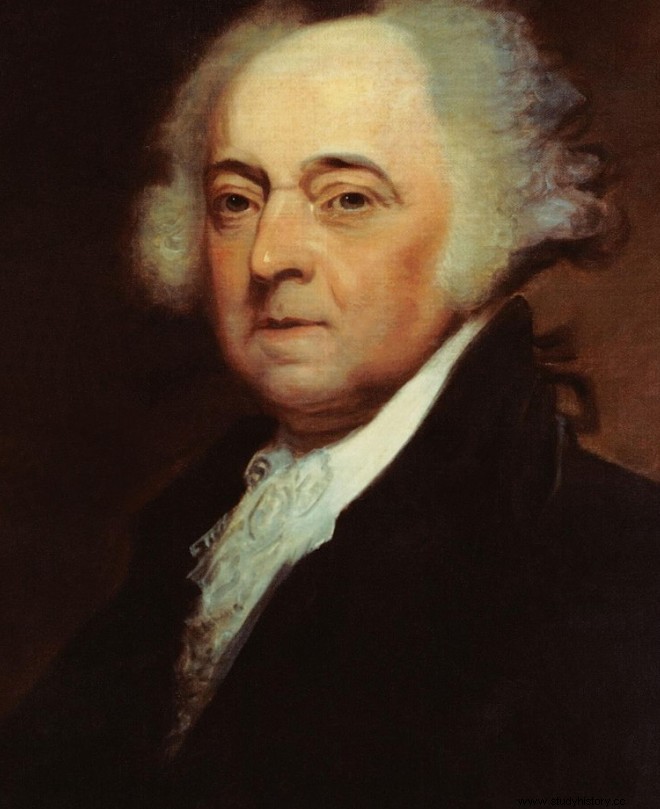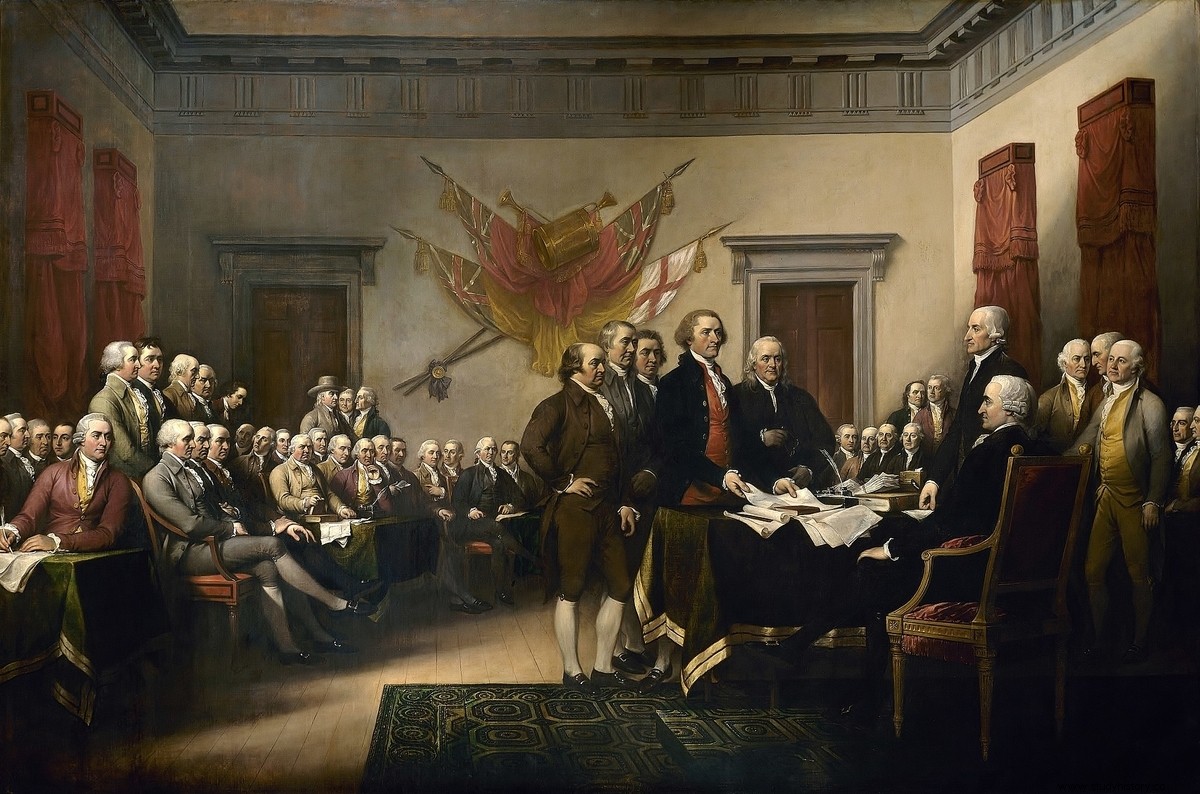Muromachi 2nd Shogun, Tokugawa 2nd Shogun, 2nd Roman Emperor, 2nd Han Empire Emperor, Ming 2nd Emperor I think that few people will come up with their names immediately.
As with these examples, few Japanese will soon see the name John Adams, and fewer will know what John Adams did.
Anything shop that has been active in a wide variety of fields

Sports and history cannot be established with only stars.
Born and raised in Massachusetts, John Adams is a modest but quite important figure in US independence.
It is rare for a person to become president from the peasant class in American society, which inherits the British lineage and is actually very much influenced by birth.
The Adams family was a descendant of a peasant who settled in the United States in the 1630s, and has been a Puritan (Protestant) family for generations since then. John's father was also a devout Protestant Christian and was said to have been a priest.
Born not wealthy, but brilliant, John Adams graduated from Harvard University in 1759, and after graduating a few years as a teacher, studied law and became a lawyer.
By the time he was 28, he married his minister's daughter, Abigail Smith, and had six children between them, including John Quincy Adams, who would later become the sixth president.
He entered the world of politics after participating in a movement against stamp duty by the British homeland in 1765, and in 1770 the Boston Tea Party (Boston Massacre). ), He defends the perpetrators as a lawyer, and was elected a member of the Massachusetts Assembly in the same year.
He then represented Massachusetts at the 1774 Continental Congress, recommending George Washington as Commander-in-Chief of the Army.
The Battle of Lexington and Concord intensified in 1775, and John Adams, along with Benjamin Franklin and Thomas Jefferson, drafted the Declaration of Independence . I do.

After the American Revolutionary War, he struggled in Europe, became a representative of the United States in the Paris Treaty arbitrated with Britain mediated by France, and played an important role as a plenipotentiary ambassador in Europe.
Under this treaty, the United States was granted fishing rights in the Atlantic Ocean and ownership of land east of Mississippi, and succeeded in establishing trade with European countries such as the Netherlands and Prussia, which is very important in the United States after independence. Played a role.
Eventually, when George Washington became the first president, John Adams became vice president and assisted him, and when Washington declined to run for president because three elections were undesirable, John Adams became the second president of the United States.
When Adams was in the presidency, the struggle by the factions was fierce, especially with Thomas Jefferson, who would later become the third president of the United States.
During John's incumbent, the French Revolution took place in Europe, where France saw the United States as a friend of Britain and captured American merchant ships, which history has called a pseudo-war between the United States and France.
Opinions were divided in the United States over the response to France, but in 1798 France attacked the United States, and the two countries entered a state of war.
At this time John Adams created the US Navy to prepare for the invasion of France.
Meanwhile, he sent diplomat William Valence Murray to Napoleon Bonaparte, and after discussions, the two countries were reconciled and the war situation was avoided.
However, since this diplomat dispatch was at the discretion of John Adams, the country was divided, and Thomas Jefferson was elected in the United States presidential election held in 1800, becoming the third president of the United States.
By the way, just around this time, the White House was completed in Washington, D.C., and John Adams became the first US president to move into the White House. I will leave it.
Maybe it was a shock to lose the election, John Adams was absent from Thomas Jefferson's inauguration, and returned to his hometown of Massachusetts to start farming again.
He later settled with Jefferson and died quietly on July 4, 1826, just 50 years after the Declaration of Independence of the United States. He is 90 years old. One of the longest-lived presidents of all time, his longevity record was not broken until he was defeated by Ronald Reagan. Today, it is the fifth longevity record in history, including living people.
Personal evaluation of John Adams
He wasn't the type of person who could exert strong leadership, for better or for worse.
He was a very good person in practice, laying the foundations of the United States for the establishment of the Navy and negotiations with European countries, and without him the current prosperity of the United States would not have been possible. It can be said that he is an important person.
On the other hand, it is also true that the differentiation of several factions was unavoidable, and it is certain that he was one of the people who removed the item of prohibition of slavery in the draft of the US Constitution.
In the draft, Thomas Jefferson argued that abolitionism should be included in the US Constitution, but many American leaders, including George Washington, have farm owners, and this item has been removed.
John Adams had never purchased or used slaves, and his wife, Abigail, was against slavery, but had the item removed to prevent the division of the 13 states at the time of independence. ..
However, John Adams opposes slavery and, in his hometown of Massachusetts, has passed a bill to release slavery.
This part remains a major problem in the United States until now, and in the latter half of the 18th century, the world's largest civil war, the "Civil War", will occur between the north and the south. ..
What kind of evaluation is appropriate for John Adams, who affirmed slavery even though he knew it was an inhumane act? It's a very difficult problem.
Even with one of these problems, I think it's easy to see how John Adams wanted to farm in his hometown.
